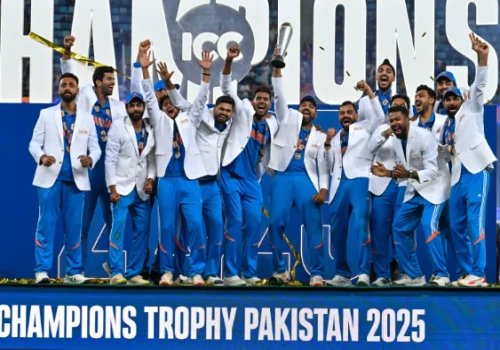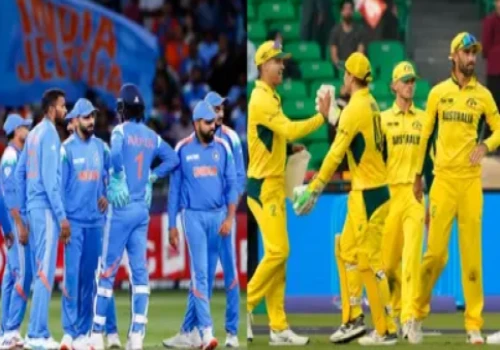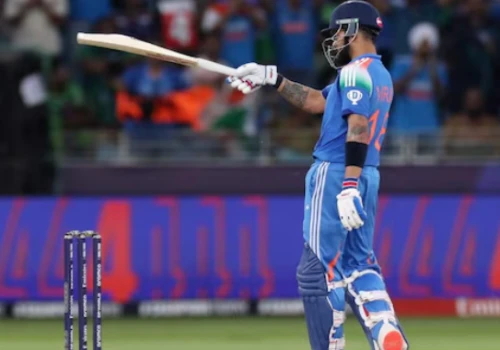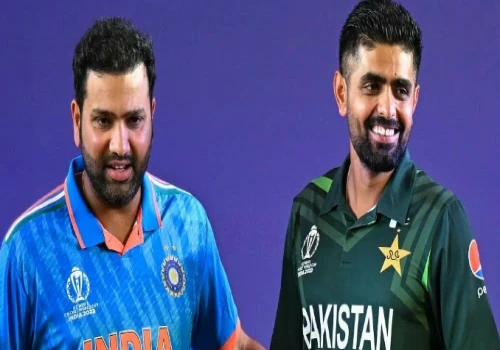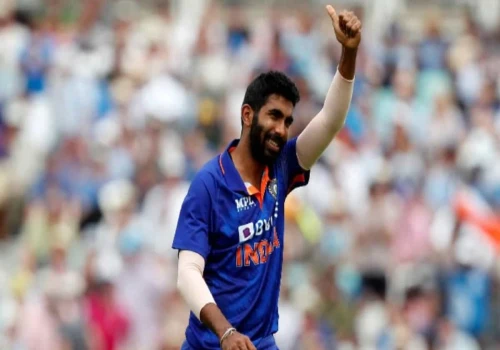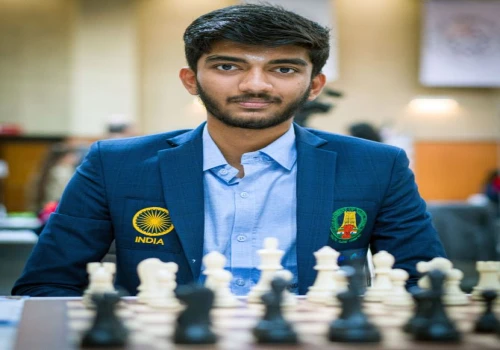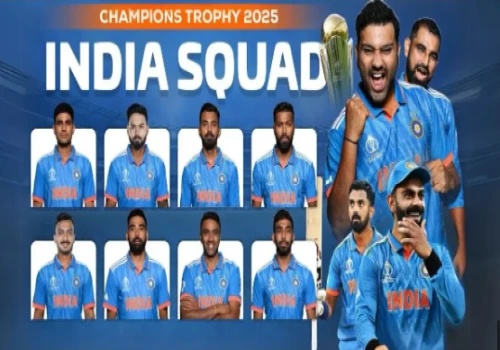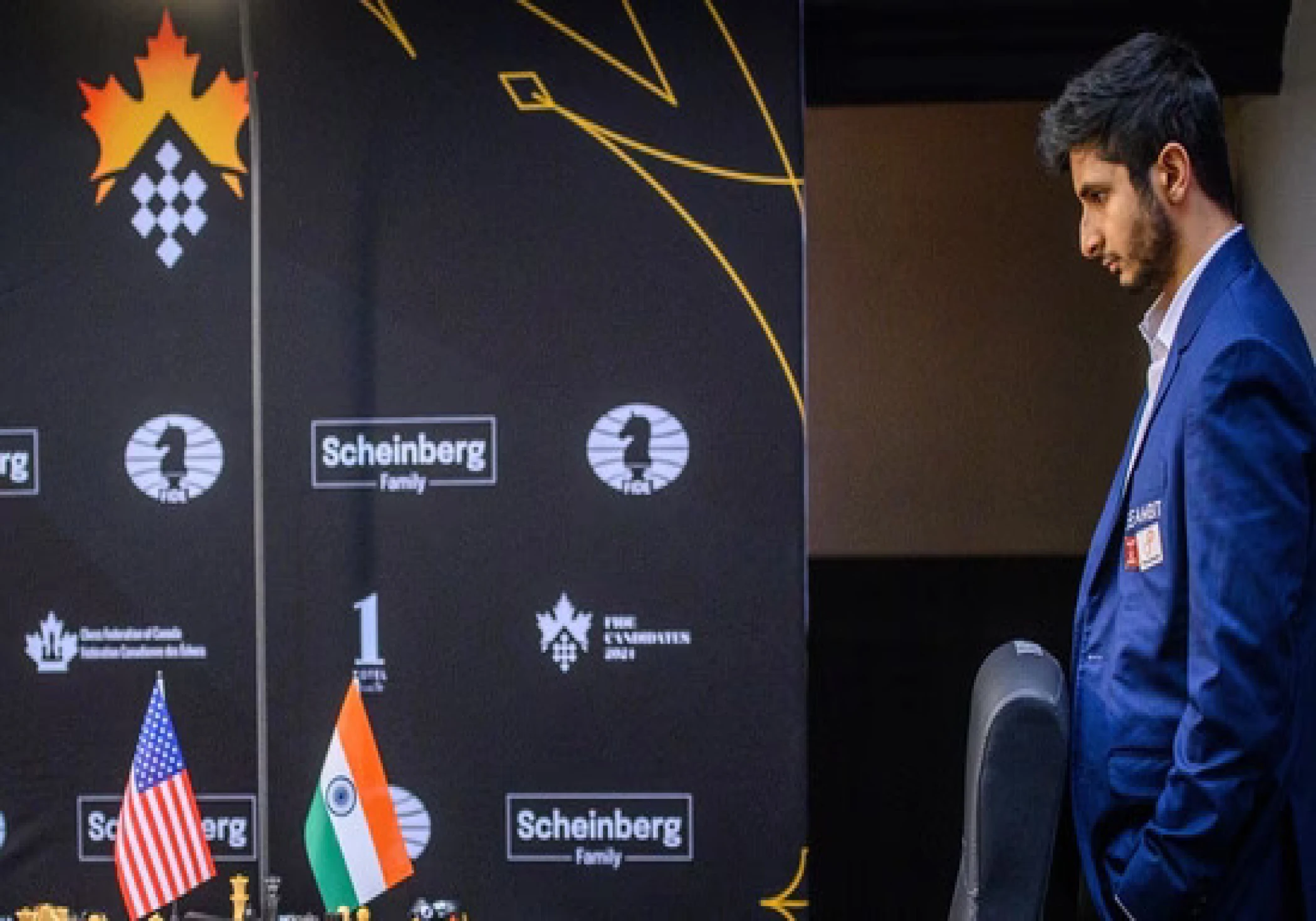
One of the most frustrating things for a chess player can be seeing your opponent make lightning moves early in the game while you are forced to sit, hand in your sleep, carefully evaluating every probability as time ticks away frantically. In the 2nd round of Candidates in Toronto, world 3 and tournament favourite Hikaru Nakamura faced this unfortunate situation with white. In front of him, a confident Vidit Gujrathi swayed in his chair, his eyes sparkling like fireflies.
Vidit revealed a unique move on move 8 with c6 and urged White to win a pawn on Ruy Lopez Berlin's opening. A novelty is essentially a fresh move in a previously played situation. In turn Vidit sacrificed a bishop and two pawns. The disorganised pattern of the American's shirt reflected his mental turmoil as he tried to understand the responsibilities and subtleties of the role. Vidit seemed well prepared and it only took him five minutes compared to Hikaru who already had over forty minutes on the clock. On turn 11, Vidit sacrificed a bishop, which was explosive and signalled Hikaru's end of the match.
Vidit gave credit to his coaches for coming up with winning concepts. Chess preparation has advanced to the point that compared to previous times, computers now show a higher number of viable moves, especially when playing for black. It's also about being able to take unexpected turns, which isn't always the computer's first choice, while coming up with new concepts at the start. Arjun Eragaisi's former coach, CEO Srinath Narayanan said, "The human element in preparation is much more today than it was in 2015-2016 when I started working on these things." Back then, it was much more common to organise information from a computer and examine what it said. It now takes a lot of conscious effort to pay attention to what the computer is saying, ignore it, and make your own decisions. This requires a human touch. "You can produce a lot of work in a month or two. With candidates, it usually takes at least three months of planning to come up with ideas. Even after the pandemic lockdown, this has been observed to happen. When everyone started playing again, the players had accumulated months of experience and expertise and many new concepts.
In an effort to find these concepts, you will try to obtain whatever data is available. You can see correspondence chess, computer games, computer tests and events such as the Computer Chess Championship, where the world's best chess engines compete against each other. But again, these are items that everyone has access to. The overall effectiveness of an original concept or innovation ultimately depends on how unlikely it is to be copied, or at least how likely it is to be used first. moves that are not the best motor moves can be suggested by a coach or player who could also explore how the related positions are evaluated. Plus, sometimes it's about designing moves—something Narayanan says the engine hesitates at first. However, you also get the impression that it is difficult for a person to find and judge. The differences between the human world and the population are clearly visible. So, in my opinion, a certain type of human evaluation has become common these days, where human problem-solving difficulties are always present, independent of the evaluation or what the engine displays. In just 29 moves, Vidit defeated Hikaru in a match that the American professional streamer later described in his YouTube commentary as "easily the worst chess" he had played in years.



